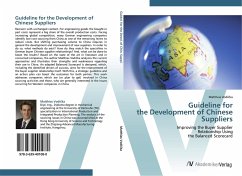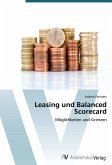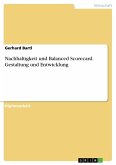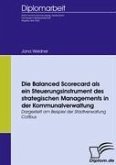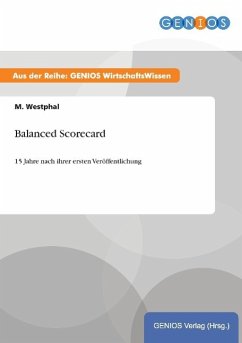Revision with unchanged content. For engineering goods the bought-in part costs represent a big share of the overall production costs. Facing increasing global competition, many German en gineering companies identify low-cost sourcing from China as one of the re maining levers to reduce costs. But shifting purchasing volume to China re quires in general the development and improvement of new suppliers. In or der to do so, what methods do exist? How do they match the specialties in Ger man buyer Chinese supplier relationships? And, what can be done to boost the results? Based on the state of the art in literature and in concerned com panies, the author Matthias Vodi ka analyzes the current approaches and illus trates their strengths and weaknesses regarding their use in China. An adap ted Balanced Scorecard is designed, which, including the identified dri vers of success, aims for the improvement of the buyer supplier relationship it self. With this, a strategic guideline and an action plan can boost the out comes for both parties. This work addresses companies which are (or plan to get) involved in China sourcing activities and those, who are generally in te res ted in the issues occurring for Western companies in China.
Bitte wählen Sie Ihr Anliegen aus.
Rechnungen
Retourenschein anfordern
Bestellstatus
Storno

